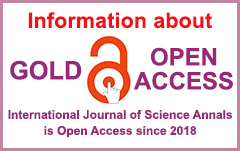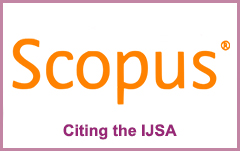Melnyk Yu. B.1,2
| 1 Kharkiv Regional Public Organization “Culture of Health”, Ukraine 2 Scientific Research Institute KRPOCH, Ukraine |
Abstract
Background and Aim of Study:The use of artificial intelligence-based (AI-based) Chatbots in scientific research and everyday practice is becoming an integral part of most people’s lives. The field of psychology, like many others, has been influenced by artificial intelligence (AI).
The aim of the study: to explore the possibilities of using AI-based Chatbots in psychological research and practice.
Results: The role of OpenAI’s ChatGPT in the scientific research of academics and psychology practitioners was reviewed. The issues of using ChatGPT, which specializes in text, in theoretical research were discussed, as well as the potential applications of AI-based Chatbots in psychological practice.
Conclusions: New AI technologies have transformed the scientific research ecosystem. Researchers, who actively use ChatGPT, should do so properly, taking into account the possibilities and limitations of using this toolkit in their research. Borrowing an AI-generated text for a research paper should be considered plagiarism. In addition to the risk to professional reputation, this can have a negative impact on the researcher’s own personal progress. People who do not have access to a qualified professional or who are financially constrained can use ChatGPT in psychological practice. In one way or another, these users must realize that the responsibility for the results and consequences of using such a toolkit rests entirely with them.
Keywords
ChatGPT, artificial intelligence, psychology research, psychology practice, possibilities, responsibility
References
Çalli, B. A., & Çalli, L. (2022). Understanding the utilization of artificial intelligence and robotics in the service sector. In S. B. Kahyaoğlu (Eds.), The Impact of Artificial Intelligence on Governance, Economics and Finance: Vol. 2. Accounting, Finance, Sustainability, Governance & Fraud: Theory and Application (pp. 243–263). Springer. https://doi.org/10.1007/978-981-16-8997-0_14
Chechitelli, A. (2023, January 13). Sneak preview of Turnitin’s AI writing and ChatGPT detection capability. Turnitin. https://www.turnitin.com/blog/sneak-preview-of-turnitins-ai-writing-and-chatgpt-detection-capability
COPE. (2023, January 30). Artificial intelligence in the news. https://publicationethics.org/news/artificial-intelligence-news
COPE. (2023, February 13). Authorship and AI tools. COPE position statement. https://publicationethics.org/cope-position-statements/ai-author
COPE. (2023, February 23). Artificial intelligence and authorship. https://publicationethics.org/news/artificial-intelligence-and-authorship
COPE Council. (2021, September). COPE Discussion document: Artificial intelligence (AI) in decision making – English. https://doi.org/10.24318/9kvAgrnJ
COPE. (n. d.). International Journal of Science Annals [COPE Members page]. COPE. Retrieved March 17, 2023, from https://publicationethics.org/members/international-journal-science-annals
Dans, E. (2019, February 6). Meet Bertie, Heliograf and Cyborg, the new journalists on the block. Forbes. https://www.forbes.com/sites/enriquedans/2019/02/06/meet-bertie-heliograf-and-cyborg-the-new-journalists-on-the-block/?sh=416c2163138d
Dimitriadou, E., & Lanitis, A. (2023). A critical evaluation, challenges, and future perspectives of using artificial intelligence and emerging technologies in smart classrooms. Smart Learning Environments, 10, 12. https://doi.org/10.1186/s40561-023-00231-3
Farahani, M. S. (2023). Applications of artificial intelligence in social science issues: a case study on predicting population change. Journal of the Knowledge Economy. https://doi.org/10.1007/s13132-023-01270-4
Hern, A. (2022, December 31). AI-assisted plagiarism? ChatGPT bot says it has an answer for that. The Guardian. https://amp.theguardian.com/technology/2022/dec/31/ai-assisted-plagiarism-chatgpt-bot-says-it-has-an-answer-for-that
Hu, K. (2023, February 2). ChatGPT sets record for fastest-growing user base – Analyst note. Reuters. https://www.reuters.com/technology/chatgpt-sets-record-fastest-growing-user-base-analyst-note-2023-02-01/
Jung, C. G. (1928). Contributions to analytical psychology (H. G. Baynes & C. F. Baynes, Trans.). Kegan Paul, Trench, Trubner and Co., Ltd. https://s3.us-west-1.wasabisys.com/luminist/EB/I-J-K/Jung%20-%20Contributions%20to%20Analytical%20Psychology.pdf
Melnyk, Yu. B. (2011). Osnovy psykhotekhnolohii [Fundamentals of Psychotechnology]. KhNPU. https://doi.org/10.26697/melnyk.yu.1.2011
Melnyk, Yu. B., & Pypenko, I. S. (2021). Dilemma: Quality or quantity in scientific periodical publishing. International Journal of Science Annals, 4(2), 5–7. https://doi.org/10.26697/ijsa.2021.2.1
Melnyk, Yu. B., & Pypenko, I. S. (2023). The legitimacy of artificial intelligence and the role of ChatBots in scientific publications. International Journal of Science Annals, 6(1), 5–10. https://doi.org/10.26697/ijsa.2023.1.1
Pypenko, I. S. (2019). Digital product: The essence of the concept and scopes. International Journal of Education and Science, 2(4), 56. https://doi.org/10.26697/ijes.2019.4.41
Singh, R., & Sood, M. (2022). An introductory note on the pros and cons of using artificial intelligence for cybersecurity. In D. Gupta, A. Khanna, S. Bhattacharyya, A. E. Hassanien, S. Anand, A. Jaiswal (Eds.), International Conference on Innovative Computing and Communications: Vol. 471. Lecture Notes in Networks and Systems (pp. 337-348). Springer. https://doi.org/10.1007/978-981-19-2535-1_26
Watson, R., & Stiglic, G. (2023, February 23). Guest editorial: The challenge of AI chatbots for journal editors. https://publicationethics.org/news/challenge-ai-chatbots-journal-editors
Yalom, I. D. (2012). Love’s executioner and other tales of psychotherapy. (2nd ed.). Basic Books. https://worldcat.org/title/1101258271
Melnyk Yuriy Borysovych – https://orcid.org/0000-0002-8527-4638;
| |
APA
Melnyk, Yu. B. (2023). Using of ChatGPT in psychology research and practice. International Journal of Science Annals, 6(2), 5–8. https://doi.org/10.26697/ijsa.2023.2.0
Harvard
Melnyk, Yu. B. 2023. "Using of ChatGPT in psychology research and practice". International Journal of Science Annals, [online] 6(2), pp. 5–8. viewed 25 December 2023, https://culturehealth.org/ijsa_archive/ijsa.2023.2.0.pdfVancouver
Melnyk Yu. B. Using of ChatGPT in psychology research and practice. International Journal of Science Annals [Internet]. 2023 [cited 25 December 2023]; 6(2): 5–8. Available from: https://culturehealth.org/ijsa_archive/ijsa.2023.2.0.pdf https://doi.org/10.26697/ijsa.2023.2.0












